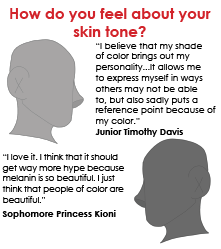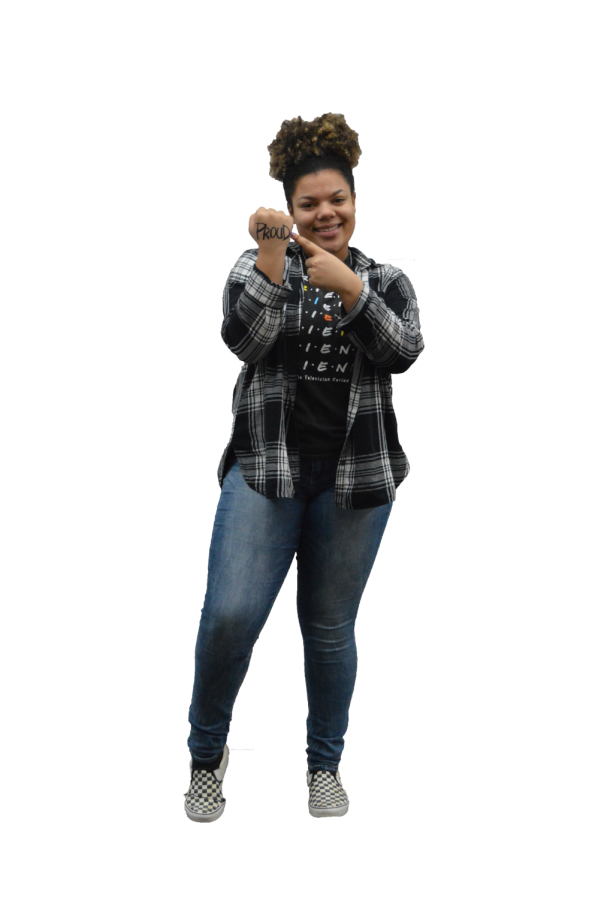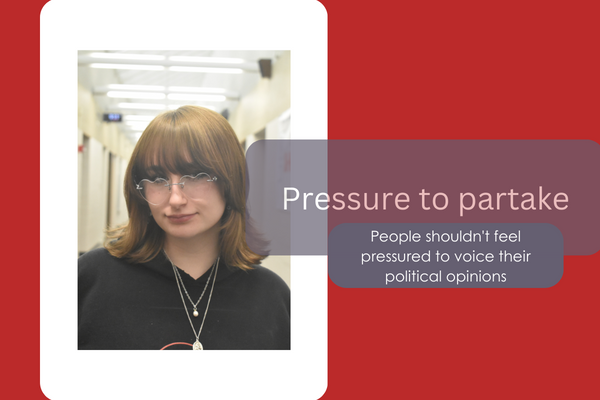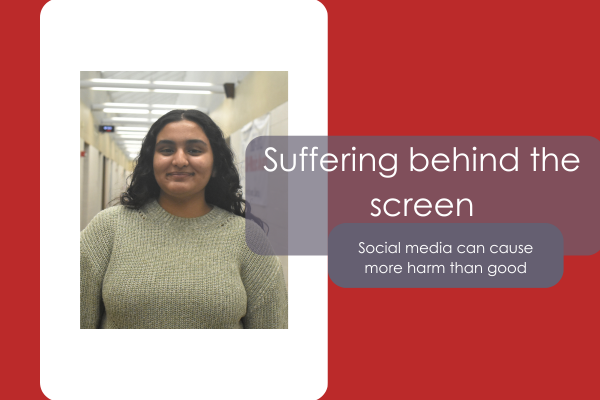Black is beautiful
Every shade within the African-American community should be appreciated
I, as a light-skinned African-American, am recognizing the fact colorism is a real thing,and firmly believe that all shades of black are beautiful. Whether someone is light-skinned, brown-skinned or dark-skinned, society needs to have the same respect for every shade of black. It’s time that we appreciate black people of every shade the same and not hold one shade to a higher standard than another.
As I look back on my elementary and middle school experience, I have come to the realization that some of my classmates were colorists, some without even realizing that they are. Commonly mistaken with racists, colorists are people that discriminate against certain shades or tones of a race. Colorists tend to treat lighter-skinned people better or hold them to higher value than darker-skinned people.
Growing up, there were many classes in which I was the only student with African-American roots. In classes where I was the only person of color and the teacher turned the lights off, a student always,without fail felt the need to say “Where’d they go?” in reference to the fact that I was too dark to be seen. If there were students darker than me in the classroom, the derogatory phrase would be said to them instead of me.
After a while, I realized that when the comment was made, it was always to the person with the darkest shade of black skin. I didn’t realize until I reached high school and reflected upon that experience that my black peers were victims of verbal colorist insults. Other than being “comedian of the year,” these students were discriminating against individuals of darker shades of black, which has been controversial within the black community for centuries.
This controversy stems from times of slavery, when the lighter-skinned and darker-skinned slaves were segregated according to what shade of black they were and labeled with the terms “house negroes” and “field negroes.” The lighter-skinned slaves, also referred to as “mulattos” at that time, were given the jobs inside the house such as cleaning, cooking, caring for children and other tasks, while the darker skinned slaves who worked in the field had to operate in harsh working conditions. In a time when the black community needed to stick together, colorism segregated and created resentment within it because of the white people holding the lighter-skinned people up as more superior than the darker-skinned people.
The idea that the lighter skinned black people were better than the darker skinned black people was instilled early in society. In today’s society, the standard is still prevalent with the unfair treatment towards darker-skinned black people. According to The Root magazine, lighter skinned black women were given 12% less time on their sentences compared to darker skinned black women.
As a society, we need to be completely open to diversity within races. We need to combat colorism by speaking up and saying something when we see it happen in front of us. I think it’s important to be a voice for the voiceless and stand by the people who’ve found their voices and are fighting for a cause. Altering set views and accepting more people leads to greater equality everywhere.
As a society, we need to be completely open to diversity within races. We need to combat colorism by speaking up and saying something when we see it happen in front of us.







